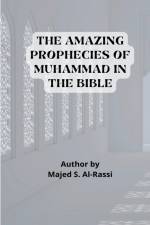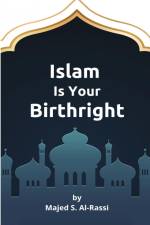av Majed S. Al-Rassi
451
HONORIFIC PHRASES IN THIS BOOK(the Exalted): used after the mention of God/Allah to express:Glorified and Exalted is He(bpuh): Blessings and peace be upon him; used after mention of theProphet Muhammad(pbuh): Peace be upon him; used after mention of any prophet or aftermention of Angel Gabriel(May Allah be pleased with him): used after mention of a maleCompanion of the Prophet(May Allah be pleased with her): used after mention of afemale Companion of the Prophet(May Allah be pleased with all of them): used after mention of threeor more Companions of the ProphetABOUT THE WORD 'ALLAH'lthough the English word 'God' has often been usedinterchangeably in this book with the word Allah, there is adifference. 'Allah' is the word in Arabic that is translated as 'God'.However, 'Allah' has a much more precise meaning than 'God'.'Allah' is not merely an Arabic term for the word 'god'. Instead, theroot word of the word 'Allah' is ilah, which means 'a god'. There arecountless numbers of made-up 'gods', but only One True God,Whose name is Allah. The word 'Allah' literally means 'theworshipped', or 'the God'. Allah is, thus, the proper name for theonly Being that is worthy of worship, the True Creator of theuniverse. By saying 'Allah', Muslims are, in essence, negating everyother entity which people wrongfully worship. The name 'Allah' ishow God Almighty has referred to Himself in the Quran, and howProphet Muhammad (blessings and peace be upon him) also referredto Him. Therefore, in this work, the term 'Allah' will often be used inreference to this One and Only God Who is worthy of worshipssarily in accordance with his or her choice; children areraised to follow the religion or ideology of their family, society orculture. Even as newborns, they are assigned either the religion oftheir family or the ideology of the state; in some countries, the child'sassigned religion is even recorded on the birth certificate. By the timeindividuals reach their teens, they have usually accepted the beliefs oftheir parents or their particular society, feeling that they have littlechoice in the matter.However, individuals often encounter, or are exposed to, variousbeliefs and ideologies throughout the course of their lives, leadingmany to question long-held beliefs, traditions or philosophical ideas.They begin to question the validity of their own beliefs. Seekers oftruth often reach a point of confusion, especially upon realizing thatthe believers of every religion, sect, ideology and philosophy claim toprofess the one and only truth.There are only three possibilities: that everyone is correct,everyone is incorrect, or only one is correct and the rest are incorrect.It is impossible for all of them to be upon the true religion since thefundamentals of all religions are different. On the other hand, to claimthat they are all incorrect is to deny that Allah (Glorified and Exaltedis He) revealed His will to humankind. This proposition will seemabsurd to those who believe in a wise Creator. After all, why wouldAllah create human beings and not reveal a way to the truth? Sowhich religion is the right one, and how can the seeker of truthcome to know it? This is the main subject of this work.When beginning the search for the true religion, one should keepthe following four things in mind:



